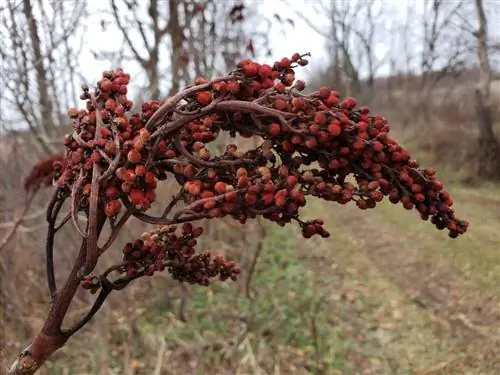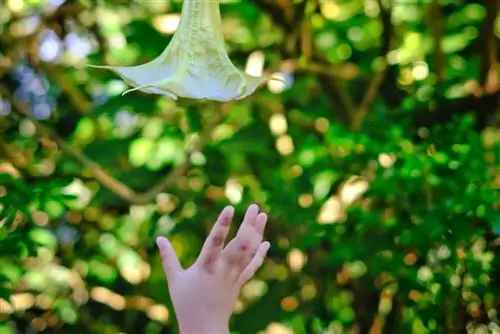- Author admin [email protected].
- Public 2023-12-16 16:46.
- Last modified 2025-01-23 11:21.
As popular as the evergreen boxwood is, all parts of its plant are highly poisonous to both humans and animals.

Are boxwoods poisonous to people and animals?
The boxwood is poisonous to humans and animals because all parts of the plant, especially leaves and bark, contain over 70 alkaloids. The main active ingredient is cyclobuxin (Buxin). Symptoms of poisoning include nausea, vomiting, cramps, diarrhea, tremors, paralysis and a drop in blood pressure.
Toxins
All parts of the boxwood are highly poisonous: from the roots to leaves, flowers, fruits and wood, the plant contains over 70 different alkaloids. The highest concentrations of poison are in the leaves and in the bark, where the alkaloid content is up to three percent. The flowers and fruits are also considered highly poisonous. The main active ingredient is cyclobuxin (buxin).
Symptoms
Poisoning by mere touch is only possible in very sensitive people, for example if they come into contact with plant juices when pruning and react with skin irritation. That's why experts recommend always wearing gardening gloves (€9.00 on Amazon) and cleaning tools thoroughly when carrying out such activities. However, if parts of the boxwood are consumed, severe symptoms of poisoning can occur - depending on the amount of plant parts - which can even be fatal under certain circumstances. However, boxwood tastes very bitter, which is why consuming large quantities is unlikely.
Human
Boxwood poisoning in humans is manifested, among other things, by the following symptoms:
- Nausea and vomiting
- Cramps
- Diarrhea
- uncontrolled shaking
- Symptoms of paralysis
- Drop in blood pressure (circulatory collapse possible)
Sensible first aid measures: administering medicinal charcoal to bind the poison in the body and drinking plenty of water. Do not give the affected person any milk to drink or make them vomit! However, any plant residues still in the mouth should be spit out immediately.
Animal
The same symptoms and first aid measures apply to animals as to humans. However, the lethal doses are lower here: 150 grams are lethal for dogs weighing up to 30 kilograms, and just 20 grams for a cat. Small animals such as rabbits, guinea pigs and the like almost always suffer fatal poisoning.
Tip
Box was also used in medicine for many centuries. However, the plant is considered difficult to dose, which is why its use as a medicinal plant should be avoided.






